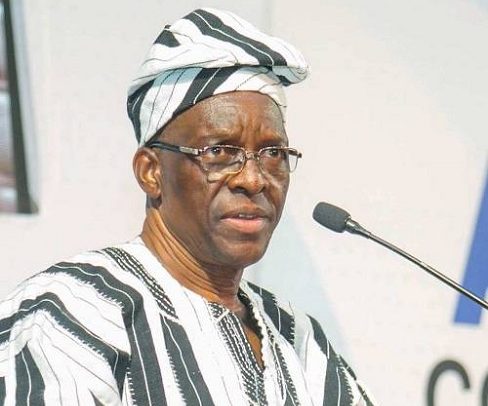Alban S.K. Bagbin
Speaker of Parliament, Alban S.K. Bagbin, has called for world governance reform to help deal with current global problems that are beyond the capacity of individual nation-states.
He believes the current governance system in place is insufficient and ineffective in making the world more responsive, democratic, inclusive, and aligned with modern-day governance.
Speaker Bagbin stated at the City Montessori School’s 24th International Conference of Chief Justices from around the world in Lucknow, India, that the world’s three pillars of government – executive, legislative, and judiciary – are not able to deliver the peace and development needed.
He proposed that the world adopt a new governance structure with four equal arms: the executive, legislature, judiciary, and civil society/the media, noting, “The checks are jerks and the balance are imbalances.”
He described civil society organisations as the backbone of positive change, capable of facilitating transformative reforms and holding governments and international bodies accountable for their actions.
The conference was held on the theme: “Uniting the world for children through enforceable world law and effective global governance.”
A total of 63 countries participated in the conference.
Mr. Bagbin stated that the world requires a new governance structure to better handle disputes, deliver justice, reclaim people’s lost trust in all sectors of society’s leadership, offer people with hope and optimism, and promote peace, love, and happiness.
According to him, the new organisation must create an equal, just, and sustainable future for all, as well as prescribe behaviour and implement enforceable laws to control states’ conduct in areas where the global community is most challenged.
“Let’s face it, legislatures over the world have not been able to throw light on the operations of the executive nor hold it accountable to the people; neither have legislatures succeeded in self-regulation nor post legislation scrutiny.
The proposed four world governance institutions must be truly equal, and work on the principles of checks and balances, openness, transparency and accountability, he intimated.
He told the participants that it was their role as leaders to guarantee that the next generation inherits a world that is habitable, meets the ambitions of the youth, and protects the integrity and dignity of the human race.
He also mentioned conflicts in the Korean Peninsula, Russia-Ukraine, the Sahel, Israel-Hamas, and issues around Artificial Intelligence (AI), and its potential existential threat to humanity.
In all of this, he stated, the global community must prioritise laws and governance interventions that protect children’s futures, as well as develop mechanisms to hold governments accountable for acts that violate children’s rights, such as child labour, child marriage, trafficking, and exploitation.
He encouraged governments to protect children’s rights and guarantee their survival and development, by upholding their legal obligations under the UN Conventions on the Rights of the Child.
He advised the youth who were part of the conference to remain optimistic and focus on developing an international community that cares for all.
He said, “you have innovation and energy to build a better society. You are the best placed to lead this transformation. You must compel governments to consider more resilient safety nets for the vulnerable, and demand participation in government.”
By Ernest Kofi Adu


